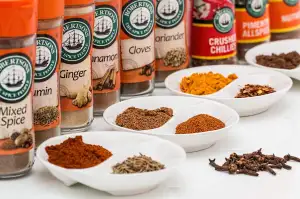Scrumptious Scallops: Exploring the Delicate Delights of this Exquisite Shellfish

Scallops, with their delicate flavor and tender texture, are a true delight for seafood lovers. These bivalve mollusks are found in oceans all over the world and have been enjoyed as a culinary delicacy for centuries. With their distinctive fan-shaped shells and sweet, succulent meat, scallops have become a popular choice in kitchens around the globe. Whether grilled, sautéed, or served raw, these delectable shellfish offer a unique dining experience that is sure to please even the most discerning palate. Join us on a journey through the world of scallops as we explore their various types, culinary uses, health benefits, and much more. Get ready to indulge in the exquisite flavors of this remarkable shellfish!
Types of Scallops
Scallops come in various types, each with its own unique characteristics and flavors. The most commonly found types are:
1. Sea Scallops: These are the largest and most popular type of scallops. They have a sweet, delicate flavor and a tender texture. Sea scallops are usually sold fresh or frozen and can be cooked in a variety of ways.
2. Bay Scallops: Smaller in size compared to sea scallops, bay scallops have a slightly sweeter taste and a more tender texture. They are often used in dishes like ceviche or pasta due to their small size.
3. Calico Scallops: Also known as calico scallops or pink scallops, these are smaller than both sea and bay scallops. They have a mild flavor and are commonly used in soups, stews, or stir-fries.
4. Queen Scallops: Queen scallops are tiny but packed with flavor. They have a slightly nutty taste and are often pan-fried or grilled as an appetizer.
5. Japanese Scallops: These scallops originate from Japan and have a rich, buttery flavor. They are often served raw as sashimi or lightly seared to bring out their natural sweetness.
Each type of scallop offers its own unique taste profile, allowing for endless culinary possibilities when it comes to cooking with this exquisite shellfish.
Culinary Uses of Scallops
Scallops are a versatile seafood delight that can be enjoyed in various culinary preparations. Their delicate and sweet flavor makes them a popular choice for both gourmet dishes and simple, yet elegant meals.
One of the most common ways to prepare scallops is by searing them. The high heat caramelizes the sugars in the scallops, creating a beautiful golden crust while keeping the inside tender and juicy. Served with a squeeze of lemon or a drizzle of butter, seared scallops make for an exquisite appetizer or main course.
Scallops also shine in seafood stews and soups. Their tender texture adds depth to broths, while their subtle sweetness complements the flavors of other ingredients like tomatoes, herbs, and spices. Whether it's a classic bouillabaisse or a comforting chowder, scallops bring richness to these hearty dishes.
For those who prefer lighter fare, raw or lightly marinated scallops can be used in ceviche or sushi rolls. The mild taste of scallops pairs well with citrus juices and fresh herbs, creating refreshing and vibrant flavors.
Scallops are also fantastic when grilled or roasted. The smoky char adds complexity to their natural sweetness, making them perfect for summer barbecues or as an addition to salads and pasta dishes.
In addition to these traditional cooking methods, scallops can be incorporated into stir-fries, risottos, and even as toppings on pizzas. Their versatility allows them to adapt well to different cuisines and flavor profiles.
No matter how they are prepared, scallops always add an element of elegance to any dish. Their delicate texture and subtle taste make them a favorite among seafood lovers worldwide.
Health Benefits of Scallops
Scallops not only tantalize our taste buds, but they also offer a range of health benefits. These exquisite shellfish are packed with nutrients and are a great addition to a balanced diet. Firstly, scallops are an excellent source of protein, which is essential for building and repairing tissues in our body. They are also low in fat and calories, making them a healthy choice for those watching their weight. Additionally, scallops are rich in omega-3 fatty acids, known for their heart-healthy properties. These fatty acids help reduce inflammation and promote cardiovascular health. Moreover, scallops contain important minerals like magnesium and potassium that support muscle function and maintain blood pressure levels. Lastly, scallops are a good source of vitamin B12, which is crucial for maintaining healthy nerve cells and producing red blood cells. With their impressive nutritional profile, including scallops in your diet can contribute to overall well-being.
How to Select and Store Scallops
When selecting scallops, it is important to choose ones that are fresh and of high quality. Look for scallops that are firm, moist, and have a sweet, oceanic smell. Avoid any scallops that have a strong fishy odor or appear slimy.
When it comes to storing scallops, it is best to consume them as soon as possible. If you need to store them, place them in a shallow dish or tray lined with damp paper towels and cover with plastic wrap. Store in the coldest part of your refrigerator for up to two days.
To maintain their freshness and flavor, do not freeze scallops unless they are specifically labeled as "previously frozen." If freezing is necessary, ensure they are tightly sealed in an airtight container or freezer bag.
Remember, the key to enjoying the delicate delights of scallops lies in their freshness and proper storage techniques.
Popular Scallops Recipes
1. Pan-Seared Scallops with Lemon Butter Sauce: Sear scallops in a hot pan until golden brown, then drizzle with a tangy lemon butter sauce.
2. Bacon-Wrapped Scallops: Wrap each scallop in a strip of bacon and bake until crispy and delicious.
3. Scallop Ceviche: Marinate scallops in lime juice, cilantro, and diced vegetables for a refreshing and zesty appetizer.
4. Grilled Scallops with Garlic Herb Butter: Skewer scallops and grill them to perfection, then top with a flavorful garlic herb butter.
5. Scallops Risotto: Add seared scallops to creamy risotto for an indulgent and satisfying meal.
6. Scallop Pasta with White Wine Sauce: Toss sautéed scallops with pasta in a creamy white wine sauce for a decadent seafood pasta dish.
7. Scallop Chowder: Simmer scallops with potatoes, onions, and cream for a comforting and hearty chowder.
8. Scallop Sushi Rolls: Roll sliced scallops into sushi rolls along with avocado, cucumber, and rice for an elegant sushi option.
9. Scallop Salad with Citrus Dressing: Combine seared scallops with mixed greens, citrus segments, and a tangy dressing for a light yet flavorful salad.
10. Scallop Tacos: Fill warm tortillas with grilled scallops, fresh salsa, avocado slices, and a squeeze of lime juice for tasty seafood tacos that pack a punch of flavor.
Scallops in Different Cuisines
Scallops are a versatile ingredient that can be found in various cuisines around the world. In French cuisine, Coquilles Saint-Jacques is a popular dish where scallops are seared and served with a creamy sauce. In Italian cuisine, scallops are often used in pasta dishes like Linguine ai Frutti di Mare. In Japanese cuisine, scallops are enjoyed raw as sashimi or cooked in dishes like Hotate Yaki, which is grilled scallops with soy sauce and butter. In Chinese cuisine, stir-fried scallops with vegetables are a common delicacy. Scallops truly have the ability to elevate any dish and add a touch of elegance to different culinary traditions.
Sustainability and Environmental Impact of Scallops
Scallops are considered a sustainable seafood option due to their abundance in the ocean and their ability to reproduce quickly. They are also often harvested using environmentally friendly methods such as hand diving or using dredges with escape rings to minimize bycatch.
However, there are concerns about the potential impact of scallop farming on the environment. Intensive farming practices can lead to water pollution and habitat destruction if not managed properly. It is important for scallop farmers to follow responsible aquaculture practices to minimize these impacts.
To ensure that you are choosing sustainably sourced scallops, look for certifications such as the Marine Stewardship Council (MSC) or Aquaculture Stewardship Council (ASC). These certifications guarantee that the scallops have been sourced from well-managed fisheries or farms.
By making informed choices and supporting sustainable scallop production, we can enjoy this delectable shellfish while preserving our oceans for future generations.
Interesting Facts about Scallops
1. Scallops have the ability to swim by rapidly opening and closing their shells, propelling themselves through the water.
2. Some species of scallops can live up to 20 years or more.
3. The largest scallop ever recorded measured over 9 inches in diameter!
4. Scallops have both male and female reproductive organs, allowing them to reproduce with any other scallop they encounter.
5. In some cultures, scallops are considered a symbol of fertility and good luck.
6. Scallops have a highly developed sense of vision, with up to 200 eyes lining the edges of their mantles.
7. The famous pilgrimage site, Santiago de Compostela in Spain, takes its name from the Latin word for scallop shell.
8. Scallops are filter feeders, meaning they extract nutrients from the water by filtering out particles with their feathery gills.
9. Some scallops can change their shell coloration to blend in with their surroundings as a defense mechanism against predators.
10. The adductor muscle of the scallop is what we commonly eat, while the rest of the body is discarded.
These fascinating facts about scallops only add to their allure as a delicacy worth exploring and savoring!
In conclusion, scallops are truly a delightful seafood option. Their delicate flavor and tender texture make them a favorite among seafood lovers. Whether you enjoy them grilled, pan-seared, or in a creamy pasta dish, scallops never fail to impress. Not only are they delicious, but they also offer numerous health benefits, being low in calories and high in protein and essential nutrients. So next time you're looking for a special seafood treat, consider indulging in the scrumptious delights of scallops.
Published: 26. 11. 2023
Category: Food



